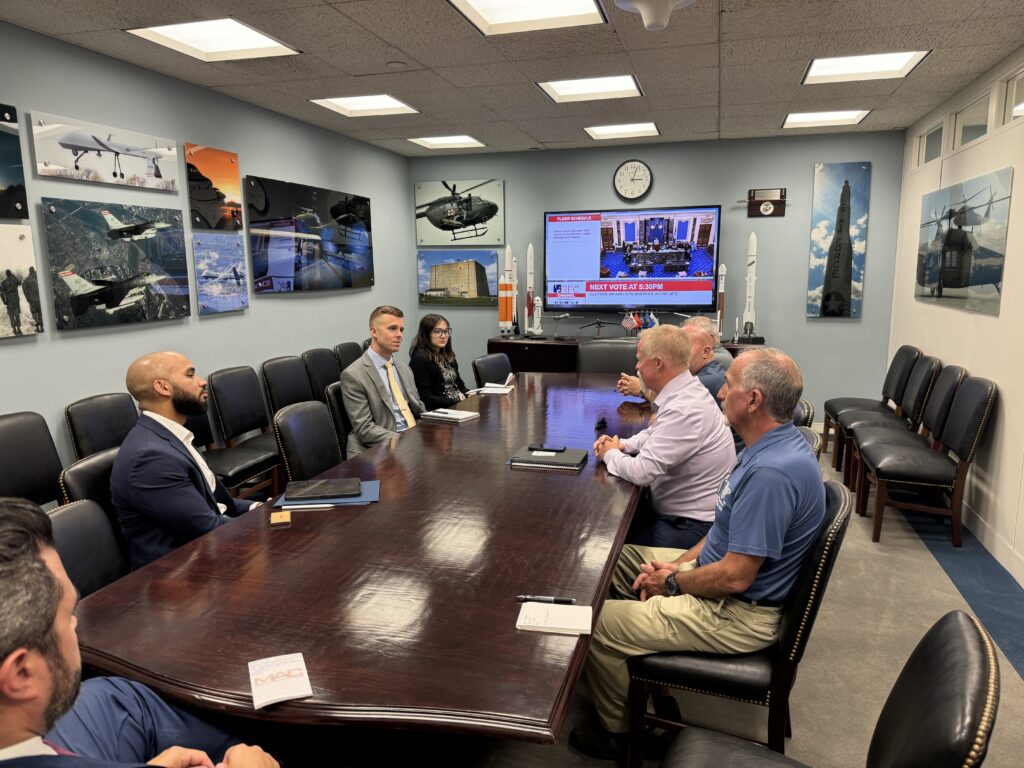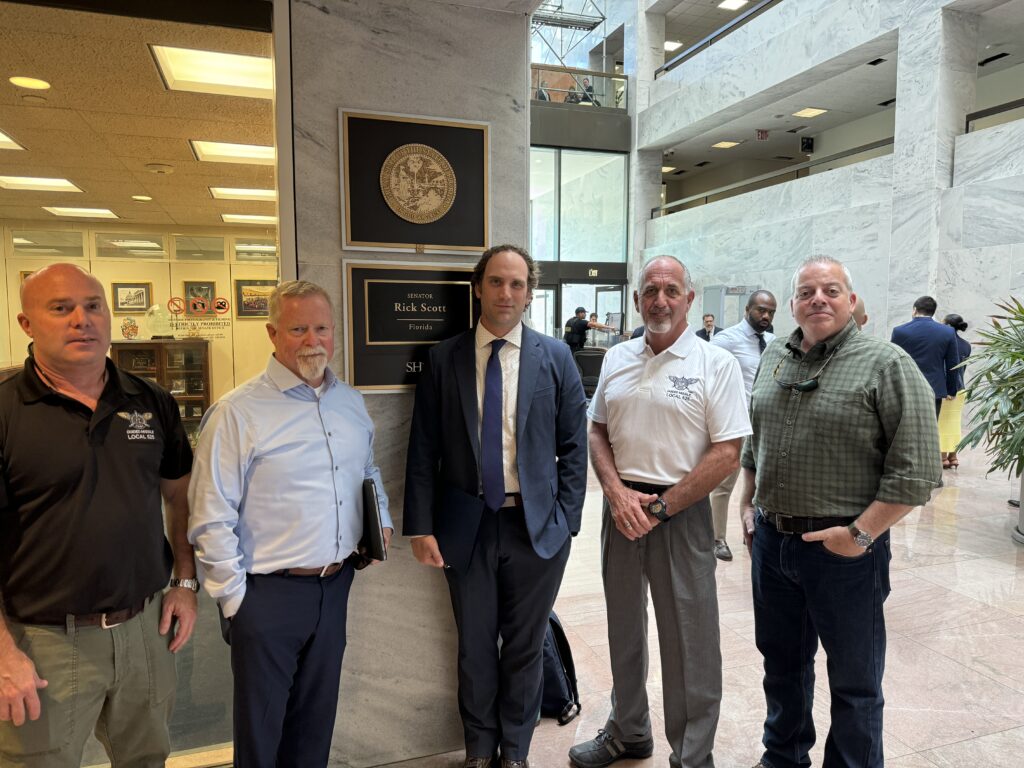The TWU is working with members of Congress in both parties to fix misguided firefighting staffing cuts at Kennedy Space Center and Cape Canaveral Space Force Station in Florida – and a group of TWU members recently took their concerns to senators to ensure higher staffing levels are included in this year’s National Defense Authorization Act.
Four TWU members, including Local 525 President and International Representative Kevin Smith, Local 525 Vice President Dennis McDonough, Executive Board Member Michael Orrison and Section Chair Wade Taylor made their case to Republican and Democratic Senate offices on Capitol Hill.
Despite a record number of space launches, and the associated danger of fires, the Air Force and Space Force have left nearly 30 firefighting positions at the two government facilities vacant.
The TWU was able to get language into the House of Representatives’ NDAA bill that would require military space launch facilities to have “optimum manning and optimum services to safeguard life and property.” U.S. Rep. Bill Posey (R-Fla.) and U.S. Rep. Darren Soto (D-Fla.) led the effort to get the language into the House’s bill. But the Senate now must pass a final bill by the end of the year meaning senators need to advocate for the firefighting staffing language to end up in the final legislation that ultimately gets voted into law.
“The staffing for fire departments is going downward. Why are we going backwards,” Smith told staffers on Capitol Hill. He said the NDAA language supported by the House will support adding more firefighters to address the shortfall.
The TWU visited with over a half dozen senators, including Florida Senators Rick Scott and Marco Rubio. The staffers for those senators were supportive of the effort and agreed that defunding firefighters while space launches increase makes zero sense from both a safety prospective and that a small investment in the firefighting workforce can save hundreds of millions of dollars in equipment that would otherwise be destroyed or damaged if firefighting response times were slower.
There were approximately 80 firefighters at Kennedy in 2019. There are 62 emergency responders there today, Smith said. The number of firefighters at Cape Canaveral has slid from 59 to 50, he said.
The number of rockets launched from Florida’s “Space Coast” rose from 16 in 2019 to 72 last year, Rep. Maxwell Frost (D-Fla.) said at a recent committee meeting. Authorities project 111 launches by the end of this year, he said. The House Science, Space and Technology Committee also unanimously approved in July an amendment directing the Governmental Accounting Office to evaluate emergency-response capabilities at NASA’s Kennedy Space Center.
The increased space launch activity is partly due to the rise of space exploration and travel by private companies, like Elon Musk’s SpaceX, and NASA’s Artemus program. Artemus aims to again put astronauts on the moon and establish a lunar space station. As a result, there are far more workers – and visitors – to the facility these days.
Firefighters, who receive extensive hazardous materials training, are at Kennedy and CCSFS to handle any catastrophic event involving spacecraft. But they routinely respond to more everyday calls like car accidents, fires, and medical emergencies, like heart attacks. Smith said the response times for some emergencies has increased by as much as 19 minutes due to the staffing cuts.


